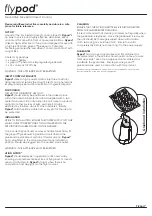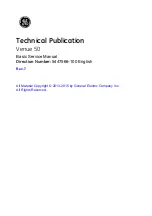
Quick Start Guide for GPS150USB V1.01
TEL + 44 1179 554474 www.digitalyacht.co.uk
LINUX
The good news for LINUX users is that the USB drivers for the GPS150USB are already included in the Kernel and it is
simply a case of plugging the GPS150USB in to a spare USB port on the PC.
However, recently we have received reports of changes to the way Ubuntu handles COM ports which has caused some
problems for our customers. Please visit our blog at
www.digitalyacht.net
and search for “Ubuntu”. You should see an
article that explains this issue and how to fix it.
4. Mode Selection
The GPS150USB has a number of operating modes that can be set by adjusting four DIP switches inside the unit. This
section explains how to select the different modes. By default the GPS150USB will output;
GLL, GGA, RMC, VTG, GSA, GSV and ZDA once per second at 4800 baud (using GPS Satellites only)
This default mode provides maximum compatibility with
all Navigation Software and will provide good basic GPS
positioning. If your Navigation software will support higher
baud and data rates, then you can start to utilise the
power of the GPS150USB and select one of the other
GPS, GLONASS or Combination modes.
For performance sailing software we even include a
“Turbo” mode which operates at 115K baud, with
combined GPS+GLONASS at a 10Hz update rate.
Selection of the operating
mode is via four “DIP” switches
inside the unit. Changes to the switches will become
active when the GPS150USB is power cycled i.e. unplug,
wait 5-10 seconds and plug back in to the USB.
There is a green LED on the PCB that indicates if the
GPS is working correctly and the baud rate selected. The
photo of the PCB shows the location of the LED and
switches.
Within 2-3 seconds of applying power to the GPS150USB, the LED should illuminate as follows;
LED State
Description
LED ON
Configured correctly for 4800 baud
LED Slow Flash
Configured correctly for 38400 baud
LED Quick Flash
Configured correctly for 115K baud (Turbo Mode)
LED Flashes once every 2 seconds
Unused Mode Selected (check DIP switches)
LED Flashes twice every 2 seconds
Power Up Sequence Failed*

























